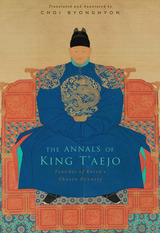
The paramount historian of the early Roman empire.
Tacitus (Cornelius), famous Roman historian, was born in AD 55, 56 or 57 and lived to about 120. He became an orator, married in 77 a daughter of Julius Agricola before Agricola went to Britain, was quaestor in 81 or 82, a senator under the Flavian emperors, and a praetor in 88. After four years’ absence he experienced the terrors of Emperor Domitian’s last years and turned to historical writing. He was a consul in 97. Close friend of the younger Pliny, with him he successfully prosecuted Marius Priscus.
Works: (i) Life and Character of Agricola, written in 97–98, specially interesting because of Agricola’s career in Britain. (ii) Germania (98–99), an equally important description of the geography, anthropology, products, institutions, and social life and the tribes of the Germans as known to the Romans. (iii) Dialogue on Oratory (Dialogus), of unknown date; a lively conversation about the decline of oratory and education. (iv) Histories (probably issued in parts from 105 onwards), a great work originally consisting of at least twelve books covering the period AD 69–96, but only Books 1–4 and part of Book 5 survive, dealing in detail with the dramatic years 69–70. (v) Annals, Tacitus’s other great work, originally covering the period AD 14–68 (Emperors Tiberius, Gaius, Claudius, Nero) and published between 115 and about 120. Of sixteen books at least, there survive Books 1–4 (covering the years 14–28); a bit of Book 5 and all Book 6 (31–37); part of Book 11 (from 47); Books 12–15 and part of Book 16 (to 66).
Tacitus is renowned for his development of a pregnant concise style, character study, and psychological analysis, and for the often terrible story which he brilliantly tells. As a historian of the early Roman empire he is paramount.
The Loeb Classical Library edition of Tacitus is in five volumes.

The paramount historian of the early Roman empire.
Tacitus (Cornelius), famous Roman historian, was born in AD 55, 56 or 57 and lived to about 120. He became an orator, married in 77 a daughter of Julius Agricola before Agricola went to Britain, was quaestor in 81 or 82, a senator under the Flavian emperors, and a praetor in 88. After four years’ absence he experienced the terrors of Emperor Domitian’s last years and turned to historical writing. He was a consul in 97. Close friend of the younger Pliny, with him he successfully prosecuted Marius Priscus.
Works: (i) Life and Character of Agricola, written in 97–98, specially interesting because of Agricola’s career in Britain. (ii) Germania (98–99), an equally important description of the geography, anthropology, products, institutions, and social life and the tribes of the Germans as known to the Romans. (iii) Dialogue on Oratory (Dialogus), of unknown date; a lively conversation about the decline of oratory and education. (iv) Histories (probably issued in parts from 105 onwards), a great work originally consisting of at least twelve books covering the period AD 69–96, but only Books 1–4 and part of Book 5 survive, dealing in detail with the dramatic years 69–70. (v) Annals, Tacitus’s other great work, originally covering the period AD 14–68 (Emperors Tiberius, Gaius, Claudius, Nero) and published between 115 and about 120. Of sixteen books at least, there survive Books 1–4 (covering the years 14–28); a bit of Book 5 and all Book 6 (31–37); part of Book 11 (from 47); Books 12–15 and part of Book 16 (to 66).
Tacitus is renowned for his development of a pregnant concise style, character study, and psychological analysis, and for the often terrible story which he brilliantly tells. As a historian of the early Roman empire he is paramount.
The Loeb Classical Library edition of Tacitus is in five volumes.

Never before translated into English, this official history of the reign of King T’aejo—founder of Korea’s long, illustrious Chosŏn dynasty (1392–1910 CE)—is a unique resource for reconstructing life in late-fourteenth-century Korea. Its narrative of a ruler’s rise to power includes a wealth of detail not just about politics and war but also about religion, astronomy, and the arts.
The military general Yi Sŏnggye, posthumously named T’aejo, assumed the throne in 1392. During his seven-year reign, T’aejo instituted reforms and established traditions that would carry down through the centuries. These included service to Korea’s overlord, China, and other practices reflecting China’s influence over the peninsula: creation of a bureaucracy based on civil service examinations, a shift from Buddhism to Confucianism, and official records of the deeds of kings, which in the Confucian tradition were an important means of educating succeeding generations. A remarkable compilation process for the sillok, or “veritable records,” was instituted to ensure the authority of the annals. Historiographers were present for every royal audience and wrote down each word that was uttered. They were strictly forbidden to divulge the contents of their daily drafts, however—even the king himself could not view the records with impunity.
Choi Byonghyon’s translation of the first of Korea’s dynastic histories, The Annals of King T’aejo, includes an introduction and annotations.

Passionate about his subject and intent on sharing his zeal, Derr defends dogs with wit and flare, producing here a quirky, informative, and fitting tribute to our love affair with canines big and small.
READERS
Browse our collection.
PUBLISHERS
See BiblioVault's publisher services.
STUDENT SERVICES
Files for college accessibility offices.
UChicago Accessibility Resources
home | accessibility | search | about | contact us
BiblioVault ® 2001 - 2024
The University of Chicago Press









